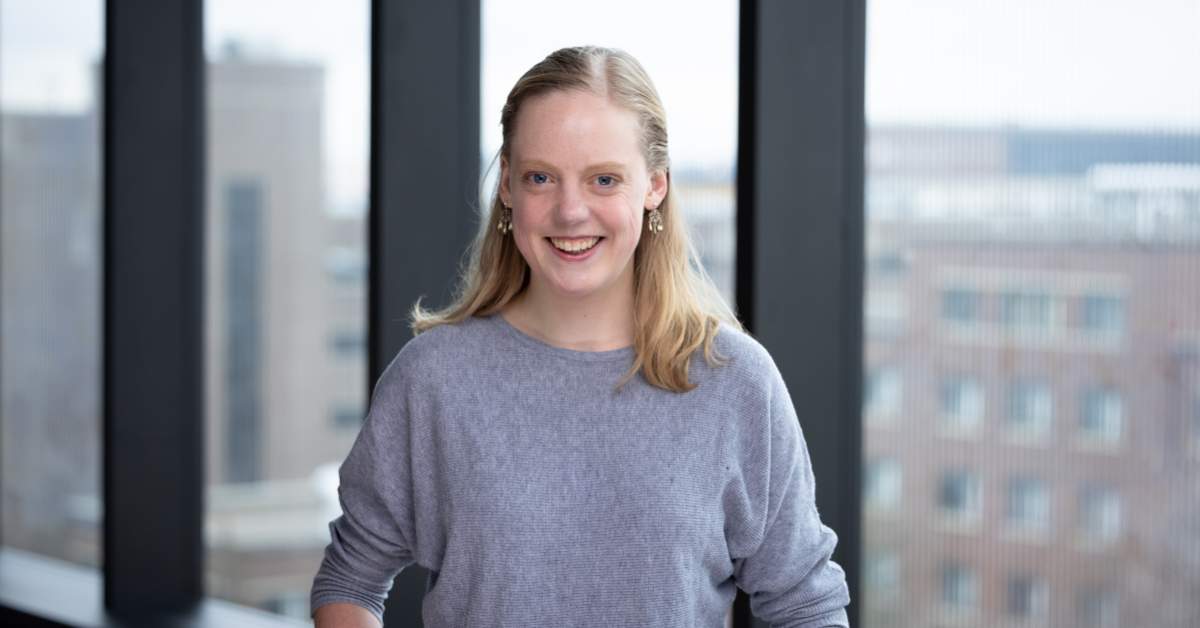Commit
Using “commit” emphasizes a pledge to prioritize antiracist efforts in making SPH a more welcome, equitable, and just organization.
What do you see as your role in antiracism?
“As a statistician, I believe there’s a big role for quantitative analysis in fighting racism. It’s not just about documenting inequities, but actually about thinking proactively – how can we use quantitative tools to challenge harmful practices? For example, in a project by Dr. Teng Ye (Assistant Professor at the Carlson School) and others, the researchers used machine learning to predict which NYC tenants were at risk of landlord harassment. They partnered with an outreach organization to proactively inform those tenants of their rights. Projects that use quantitative work to actively combat inequity are really inspiring to me.”
How are you committing on a daily basis to antiracism?
“As much as possible, I try to keep my focus on the impact of my work. This can be challenging in doing theoretical work for a PhD, but I try to be mindful of what practical problems this work might solve, and how it can impact equity more directly. My dissertation project includes metrics for assessing unfairness in clinical risk prediction models; this is statistical methods work, but it also has a direct application to combat the inequities we’re seeing with predictive models in healthcare.”
Challenge
We are “challenged” to accept that racism exists and to “challenge” it when we see it.
How are you challenging yourself in antiracist work?
“I really try to be mindful of my biases and the limitations of my perspective. As someone coming from a quantitative background, I have a predisposition to prefer data-based ways of answering questions. But real antiracist work requires a lot of different tools, and I want to make sure I continue learning about other research methods and seeing how they can work alongside the statistical tools I’ve been trained on.”
How are you challenging those around you?
“For me, being newer to the field, it has been more about sharing ways that I am moving through these questions and hoping that inspires others. I don’t think I have many specific answers to offer at this point, but I see my role more as making sure questions about race and racism are not overlooked in the work that I and others in my field do.”
Change
We have to be willing to “change” and shift our beliefs, attitudes, and actions toward equity and justice.
How will you need to shift your own beliefs, attitudes, or actions toward equity and justice?
“In my case, as a white person from small-town Pennsylvania, my thinking about race was really limited for a long time. So my work is to continue expanding my perspective, uncovering my own blind spots, and being ready for change. This is important for me personally and professionally, but it’s also important so that I can gain confidence to speak up and share my beliefs with others who come from a similar cultural context. When I learn more, I am more confident being an advocate, which is crucial–antiracist work requires everyone to participate.”
What impact do you think the school can have on racism?
“I think the school can have a big impact. A lot of research dollars move through this school, so the choices we make about which topics we invest in are really important. Equally as important, we need to be mindful of who is getting the opportunity to get an education here and whose voices are heard in leadership positions. Practices change when the power structure changes, so who we put in charge matters. We need to listen to those voices and welcome change when longstanding practices are getting in the way of our equity efforts.”
“Building Equity, Driving Justice: Commit | Challenge | Change” — ties all communications related to the SPH Strategic Plan for Antiracism together under one look and feel. The theme showcases our guiding principles, and it motivates and inspires. "Agents for Change" profiles support this theme and all interview questions are related to the action words, Commit, Challenge, Change, as described above.
Submit an idea for this profile series — either your own story, or one that inspires you from another SPH individual or group.

